Kitchen towels are indispensable in every kitchen, serving a variety of functions like cleaning, drying, handling hot items and more.
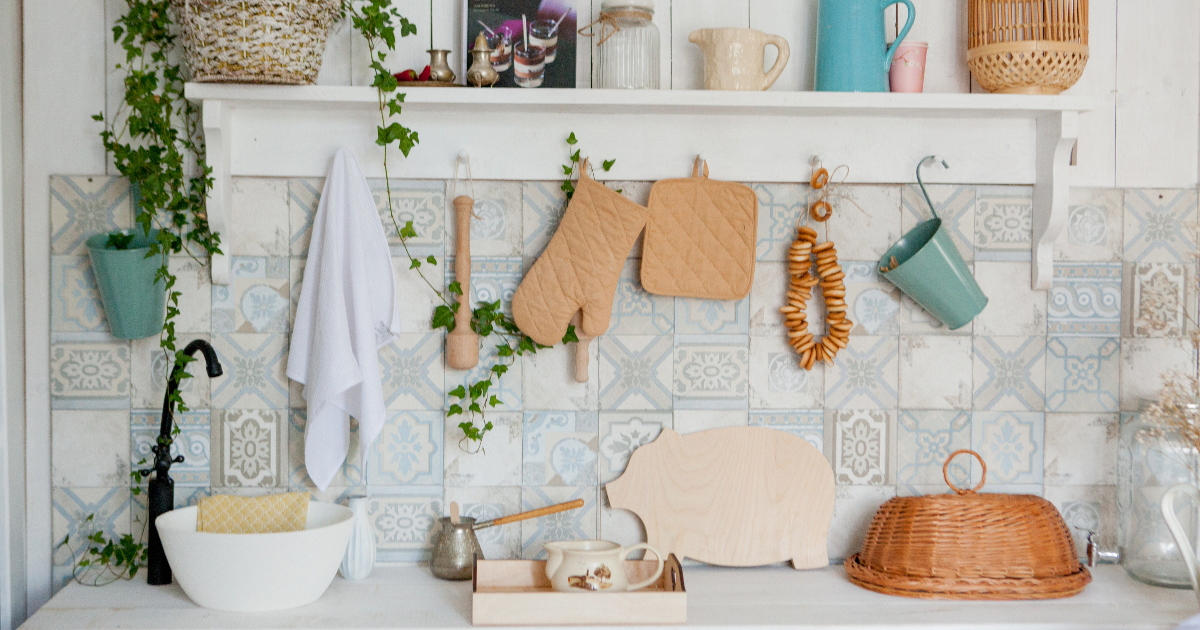
From a humble dishcloth to a decorative linen, kitchen towels come in different materials, sizes and styles.
Though often overlooked, they are one of the most versatile and useful tools to have around.
Types of Kitchen Towels
There are several varieties of kitchen towels, each suited for specific tasks:
Chef’s Towels

A good quality chef’s towel is an essential item for every cook. Chef’s towels are mostly plain white, meant for utility rather than decoration. They are usually tucked into aprons or kept handy on the workspace.
Chef’s towels allow cooks to safely handle hot pots, grab items from the oven and wipe hands or surfaces as needed. Having multiple towels on hand means you always have a fresh one ready for the next spill or hot dish straight out of the oven.
Dishcloths
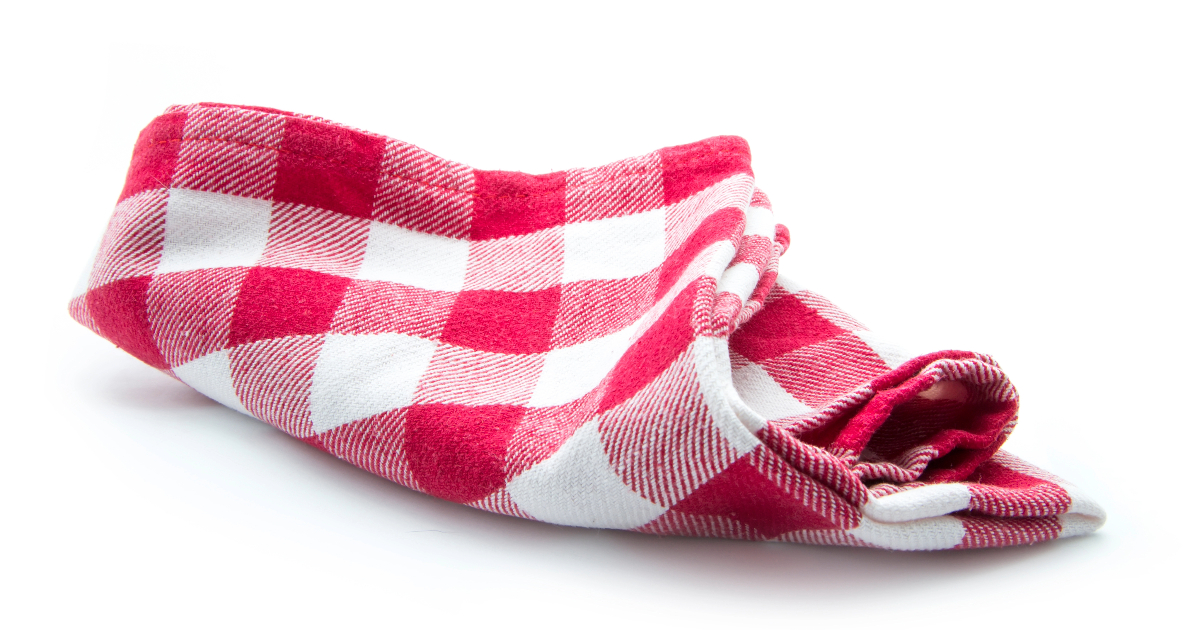
Dishcloths are intended for washing and drying dishes, though often used for other kitchen tasks. As they encounter food residues, grease and bacteria, it’s recommended to launder dishcloths after just a couple of uses.
Using dirty dishcloths risks transferring germs to dishes and causing illness. Choose dishcloths made of highly absorbent materials like terry cotton.
Terry Tea Towels
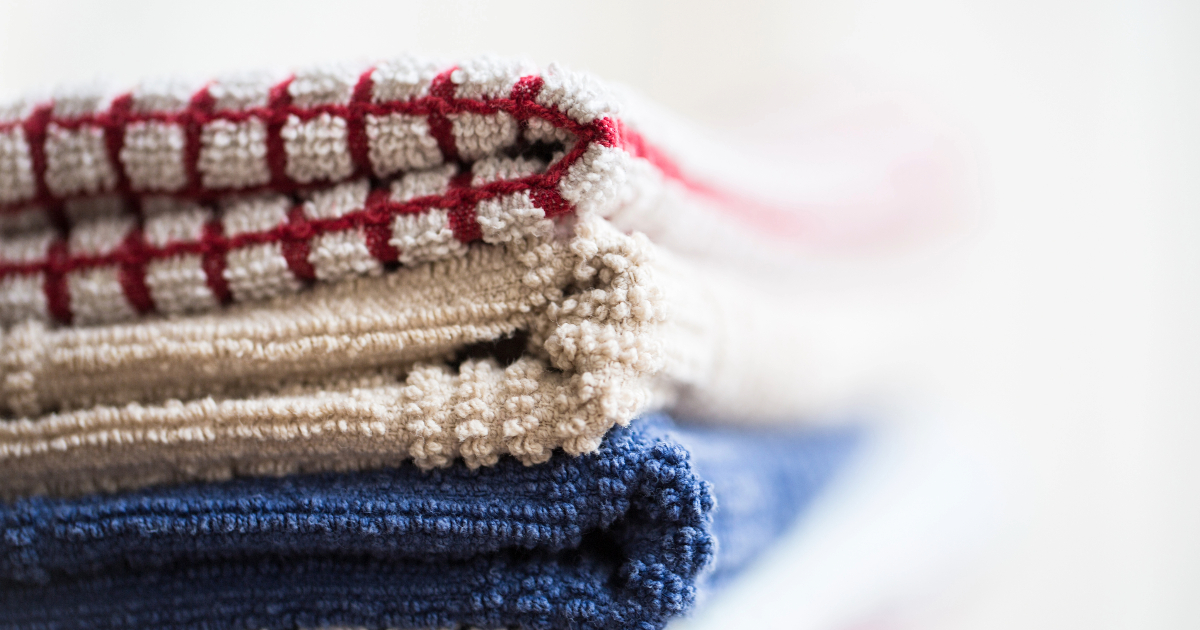
Tea towels made of terry cloth material are excellent for tasks like drying hands, dishes and flatware. They are also great for décor, used to line bread baskets or accent breakfast and tea tables.
Kitchen Hand Towels
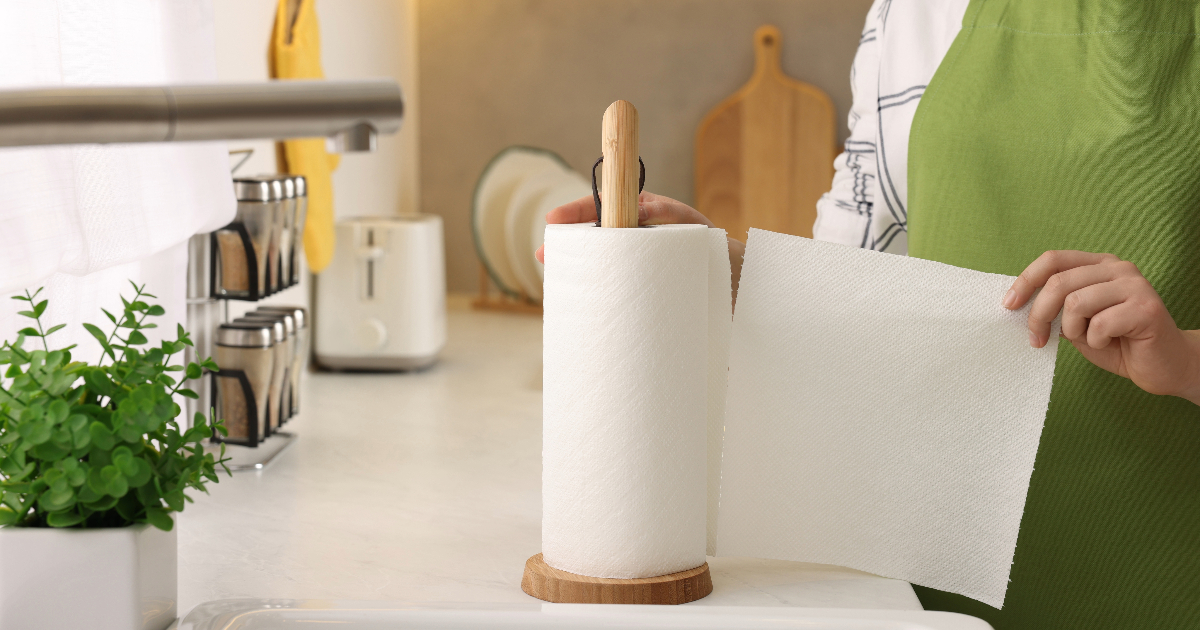
Softer hand towels are ideal for drying hands in the kitchen. Look for ones with hypoallergenic and skin-friendly properties.
Microfiber Towels
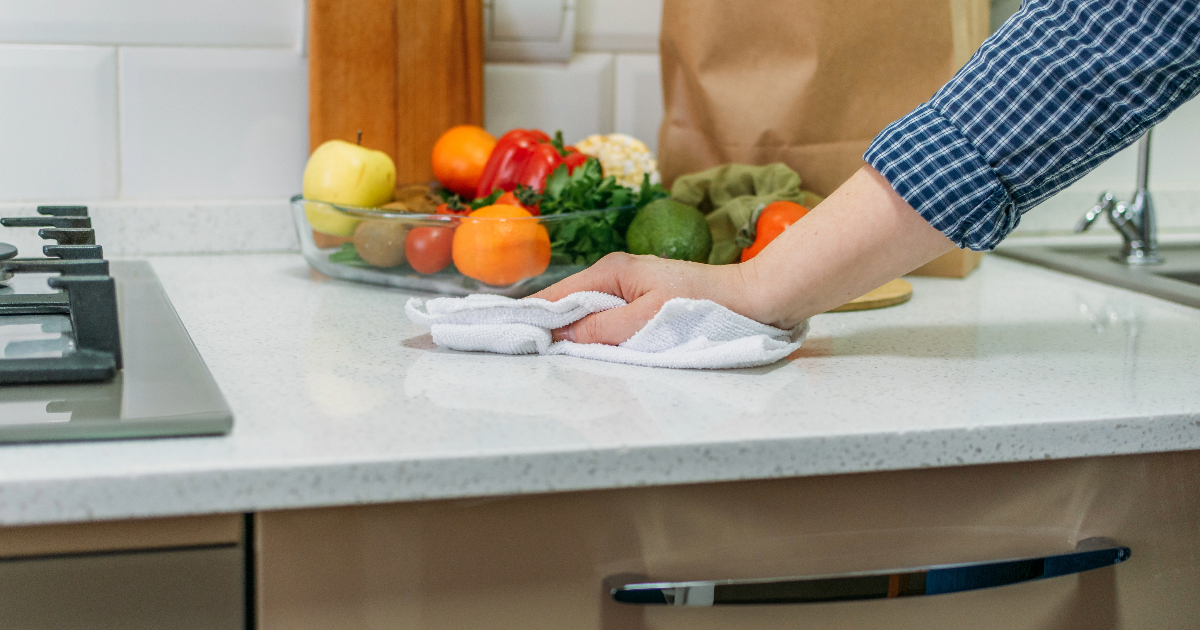
Microfiber towels efficiently clean counters, appliances and other surfaces using just water. The ultra-fine microfiber construction traps dirt, grease and bacteria. They are more durable and eco-friendly than paper towels.
Materials Used For Kitchen Towels
Kitchen towels come in a variety of materials:
Cotton
Cotton is a popular choice as it’s absorbent, soft and durable. The tightly woven fibers make cotton towels strong enough for heavy use, while still being gentle on hands and dishes. Lint-free cotton is ideal for drying glassware and cutlery.
Linen
Linen kitchen towels are valued for their softness. They gently clean delicate items like fine china without leaving lint behind. Linen is also quick-drying.
Terry Cloth
The looped piles of terry cloth create super absorbent towels that hold moisture well. They are ideal for tasks like drying hands and dishes. However, terry towels may leave some lint behind.
Microfiber
Microfiber is crafted from synthetic microfibers for superior cleaning ability. These lint-free towels remove up to 99% of bacteria from surfaces using just water. They are also quite durable.
How To Use Kitchen Towels
Kitchen towels have many helpful uses:
Cleaning and Drying Dishes
Cotton towels quickly and thoroughly dry dishes, glassware and cutlery after washing. Lint-free cotton prevents spots and streaks. Have separate towels for drying hands versus dishes.
Drying Hands
Kitchen towels allow cooks to frequently dry or wipe hands clean while prepping. Have a hand towel nearby whenever cooking or cleaning.
Drying Produce
Gently pat fresh produce dry using cotton kitchen towels to remove moisture while keeping delicate fruits and vegetables intact.
Hot Pots and Pans
Carefully grab hot cookware just off the stove using a folded towel. Oven mitts are safer, but a towel will do in a pinch.
Countertop Cleaning
Use highly absorbent terry cloth or microfiber towels to easily clean counters and other kitchen surfaces. The right kitchen towels clean without chemicals.
Improvised Potholders
Layered towels can temporarily substitute potholders to safely handle hot dishes from the oven. Fold towels for insulation.
Spills and Messes
Soak up spills and splatters with absorbent terry cloth or microfiber. Keep kitchen towels handy specifically for quick clean-up duty.
Wrapping Food
Cover dishes or wrap breads and pastries in cotton tea towels to keep foods warm and fresh. Linen also works well.
Caring For Kitchen Towels
Follow these tips to keep kitchen towels fresh and functional:
- Initially soak new towels to maximize absorbency. Wash separately first time.
- Use detergent and skip fabric softener to prevent towels from becoming water-repellent.
- Wash towels frequently, ideally after each use. At minimum, launder weekly.
- Wash dishcloths separately from other laundry items.
- Wash in hot water using a heavy soil setting to kill bacteria. Cycle for 40+ minutes.
- Don’t leave wet towels sitting in the washer; immediately dry on high heat.
- Allow towels to fully air dry between uses by hanging on a hook or towel bar.
Choosing The Best Kitchen Towels
Consider these factors when selecting kitchen towels:
Absorbency
Look for terry cloth or textured weave for high absorbency. Thicker towels also hold more liquid.
Size
Bigger towels allow for more folding and surface area coverage. Aim for at least 24 x 18 inches.
Material
Cotton offers softness, durability and absorbency. Terry cloth excels at drying. Linen gently cleans delicate items.
Density
Thicker, densely woven towels last longer and absorb better. Avoid thin, flimsy towels.
Style
Choose colors, patterns and designs that fit your kitchen’s décor. Or opt for classic white.
Kitchen towels are indispensable multi-tasking tools for every cook. Select ones in different materials for specialized jobs, and stock up on lint-free cotton towels for everyday cleaning and drying. With the right assortment of quality kitchen towels within easy reach, you’ll be prepared to handle anything!
FAQs
What are the best kitchen towels to buy?
Look for 100% cotton flour sack towels or jacquard weave towels. The tightly woven cotton material is very absorbent yet soft on hands and dishes. Cotton towels are also quite durable with proper care.
How should you wash new kitchen towels?
It’s recommended to soak new kitchen towels in warm water before first use. This helps remove any residual manufacturing oils and allows towels to achieve maximum absorbency. Wash colored towels separately the first time to prevent potential dye transfer.
Should you use fabric softener on kitchen towels?
No, skip the fabric softener when washing kitchen towels. Softener leaves an oily coating that makes towels less absorbent over time. Detergent is sufficient to keep towels clean.
How often should you wash kitchen towels?
Ideally, launder kitchen towels after each use. For most households, wash at minimum once weekly. Towels used for raw meats, greasy dishes or high-risk tasks may need washing after just one use.
What’s the best way to dry kitchen towels?
Fully air dry kitchen towels between uses by hanging on a hook or towel bar. Leaving towels wadded up spreads bacteria. Proper air circulation prevents musty odors.
Can you use kitchen towels to handle hot pans?
Yes, but use caution. Folding a kitchen towel a few times provides some insulation to briefly grab a hot pan. Oven mitts are safer for extended contact. Do not wrap towels fully around very hot pans.
Should tea towels be used on dishes?
Yes, linen or cotton tea towels are excellent for gently drying fine china, delicate stemware and other dishware without scratching or leaving lint. Just take care to launder tea towels frequently.
Conclusion
Kitchen towels are designed to play a vital role in supporting every task in the kitchen. An assortment of absorbent yet gentle cotton towels for drying and chef’s towels for handling hot items should be kitchen staples.
Terry cloth excels at spill clean-up and microfiber towels efficiently clean surfaces using just water. Pay attention to size, durability, care instructions and coordinating with your kitchen’s style.





